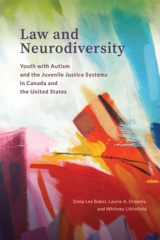
The Public Sociology Debate
Ethics and Engagement
In 2004, Michael Burawoy challenged sociologists to move beyond the ivory tower and into the realm of activism, to engage in public discourses about what society could or should be. His call to arms sparked intense debate among sociologists. Which side would “sociology” take? Who would define “the norm,” and how could public sociology possibly speak for all sociologists?
In this volume, which opens with a foreword by Michael Burawoy, leading Canadian sociologists continue the debate by discussing not only how and why they should do sociology but also how ethical judgments influence sociological practice and the evaluation of research. Most importantly, they ask whether and under what circumstances sociologists should advocate for social change. Regardless of whether they focus on activism, research, theory, or teaching, the contributors offer insights into where the discipline is heading and why it matters to people inside and outside the university.
As public sociology claims a larger voice in public debates, questioning its methods and underlying mission becomes increasingly important. This rigorous and provocative volume lays the foundation for future conversations.
This volume will appeal to scholars interested in the future of the social sciences and people who believe sociology can make a difference in the world.
The Public Sociology Debate is essential reading for scholars who wish to engage in serious debate about public sociology, public intellectuals, and the broader relevance of academic knowledge in Canada. The contributors represent a range of positions, the scholarship is first-rate, and the book addresses theoretical and philosophical questions head on, all with a solid Canadian focus.
This book revitalizes critical, engaged sociology in Canada. By tackling the notion of public sociology and adding a unique Canadian twist to the debate, this volume steers our discipline towards rich scholarly contributions and critical public commitment in the twenty-first century. Involved, timely, persuasive, and both empirical and theoretical, this volume sets a high bar for academic work.
This important book provides focused reflections on the fundamental orientations of sociology as a discipline, exploring how ethical issues shape our collective understanding of sociology’s identity and its role in relation to government and the power structures of society.
Ariane Hanemaayer is a doctoral candidate in the Department of Sociology at the University of Alberta. Christopher J. Schneider is an assistant professor of sociology at the University of British Columbia, Okanagan Campus.
Contributors: Jill Bucklaschuk, Michael Burawoy, Rick Helmes-Hayes, Anne Mesny, Laura Milne, Kyle Nolan, Susan Prentice, Scott Schaffer, Axel van den Berg, Phillip Vannini
Foreword / Michael Burawoy
Introduction: Burawoy’s “Normative Vision” of Sociology / Ariane Hanemaayer and Christopher J. SchneiderPart 1: Debating the Normative Dimensions of Professional Sociology
1 Returning to the Classics: Looking to Weber and Durkheim to Resolve the Theoretical Inconsistencies of Public Sociology / Ariane Hanemaayer
2 Public Sociology, Professional Sociology, and Democracy / Axel Van Den Berg
Part 2: Critical Reflections on the Possibility of Public Sociology
3 L’Ouverture des bouches: The Social and Intellectual Bases for Engaged and Public Social Theory / Scott Schaffer
4 Precarious Publics: Interrogating a Public Sociology for Migrant Workers in Canada / Jill Bucklaschuk
5 Reflections on the Theory and Practice of Teaching Public Sociology / Susan Prentice
Part 3: Blurring the Line between Policy and Public Sociology
6 Public Sociology and Research Ethics / Anne Mesny
7 Coral W. Topping, Pioneer Canadian Public Sociologist: “A Veteran Warrior for Prison Reform” / Rick Helmes-Hayes
Part 4: Innovative Engagements in Public Scholarship
8 Social Media and e-Public Sociology / Christopher J. Schneider
9 Public Ethnography as Public Engagement: Multimodal Pedagogies for Innovative Learning / Phillip Vannini and Laura Milne
Conclusion / Ariane Hanemaayer and Christopher J. Schneider
Epilogue: Student Reflections on a Public Sociology Course at UBC, Okanagan Campus / Kyle Nolan
Appendix 1: Theory and Practice of Sociology Syllabus, University of Manitoba
Appendix 2: Public Sociology Syllabus, UBC, Okanagan Campus
Contributors; Index









